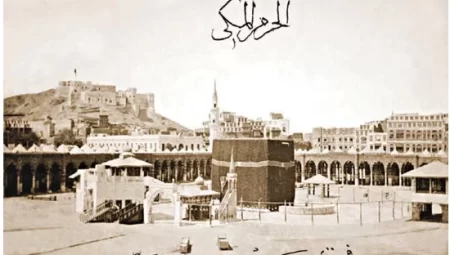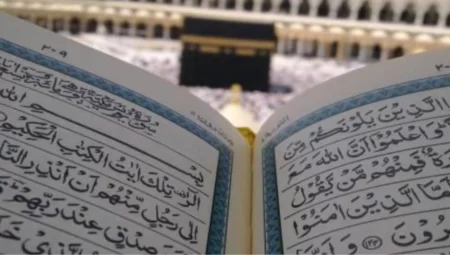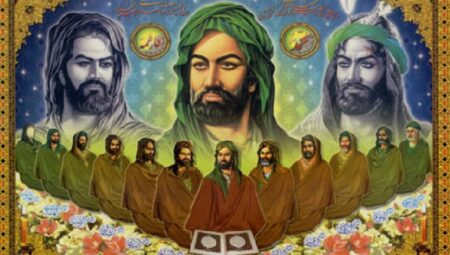Contents
Prayer For Monday
Monday is the start of a new week, and for many of us, it can be a stressful and busy day. We may have to deal with work, school, family, or other obligations that demand our attention and energy. How can we cope with the challenges of Monday and find peace and joy in our day?
One way is to start our day with prayer. Prayer is a powerful tool that connects us with Allah, the Most Merciful and the Most Compassionate. Prayer helps us to express our gratitude, seek guidance, ask for forgiveness, and make supplications for ourselves and others. Prayer also reminds us of our purpose in life, which is to worship Allah and serve His creation.
There are many ways to pray on Monday, depending on our preferences and circumstances. Here are some suggestions:
- Pray Fajr (the dawn prayer) on time and with concentration. Fajr is the first prayer of the day, and it sets the tone for the rest of the day. Praying Fajr on time helps us to wake up early, be productive, and avoid laziness. Praying Fajr with concentration helps us to focus on Allah and His blessings, and to seek His protection from evil.
- Read some verses from the Quran after Fajr. The Quran is the word of Allah, and it contains guidance, wisdom, and healing for our hearts and minds. Reading the Quran after Fajr helps us to start our day with knowledge, inspiration, and motivation. We can choose any surah (chapter) or ayah (verse) that we like, or follow a reading plan that covers the whole Quran in a year or less.
- Make dua (supplication) for ourselves and others throughout the day. Dua is the essence of worship, and it shows our dependence on Allah and our trust in His plan. Making dua throughout the day helps us to remember Allah in every situation, to thank Him for His favors, to ask Him for His help, and to intercede for others who are in need. We can make dua for anything that is good and permissible, such as health, happiness, success, guidance, forgiveness, etc.
- Pray Dhuhr (the noon prayer), Asr (the afternoon prayer), Maghrib (the sunset prayer), and Isha (the night prayer) on time and with congregation if possible. These are the obligatory prayers that every Muslim must perform every day. Praying them on time helps us to organize our day around the worship of Allah, and to avoid distractions and procrastination. Praying them with congregation if possible helps us to strengthen our bond with other Muslims, to benefit from their company and support, and to earn more rewards from Allah.
- Pray Witr (the odd-numbered prayer) before going to sleep. Witr is a voluntary prayer that is highly recommended to perform every night. Praying Witr before going to sleep helps us to end our day with worship, to seek Allah’s forgiveness for our sins, and to ask Him for a good night’s sleep and a good morning.
These are some of the ways that we can pray on Monday and make it a blessed day. Of course, we can also add other forms of worship that we like or that suit our needs, such as dhikr (remembrance of Allah), salawat (sending blessings upon the Prophet Muhammad), charity, fasting, etc.
The important thing is to remember that Monday is not a burden or a curse, but a gift and an opportunity from Allah. He has given us another day to live, to learn, to grow, and to serve Him. He has also given us many resources and facilities that make our lives easier and more comfortable.
So let us not waste this precious day by complaining or being ungrateful. Rather, let us embrace it with gratitude and optimism. Let us pray to Allah sincerely and earnestly. Let us do our best in whatever we do, whether it is work or study or family or leisure. Let us be kind and helpful to others, especially those who are less fortunate than us.
And let us always remember that Allah is with us, watching over us, listening to us, and responding to us. He loves us more than we can imagine, and He wants what is best for us.
May Allah make Monday a blessed day for all of us. Ameen.
Prayer For Tuesday
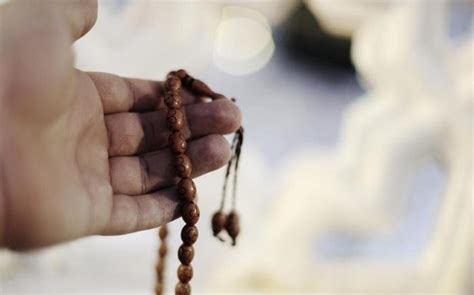
As Muslims, we believe that prayer is one of the most important acts of worship that we can perform. Prayer is not only a way of communicating with our Creator, but also a means of purifying our hearts, strengthening our faith, and seeking guidance and forgiveness. Prayer also helps us to remember Allah and His blessings, and to express our gratitude and praise for Him.
One of the prayers that we perform every week is the Tuesday prayer, or Salat al-Thulatha. This prayer is a sunnah, or a voluntary act, that was practiced by the Prophet Muhammad (peace be upon him) and his companions. The Tuesday prayer consists of four rak’ahs (units) of prayer, two before sunrise and two after sunrise. The Prophet (peace be upon him) said: “Whoever prays four rak’ahs on Tuesday, reciting in each rak’ah Surah al-Fatiha and Surah al-Kahf, Allah will protect him from the trials of this world and the Hereafter.” (Sunan Ibn Majah)
Surah al-Kahf is the 18th chapter of the Quran, which contains 110 verses. It tells the stories of four groups of people who faced different challenges and tests in their lives: the people of the cave, who fled from persecution and slept for centuries; the owner of the two gardens, who was arrogant and ungrateful for his wealth; Musa (Moses) and Khidr, who traveled together and learned from each other; and Dhul-Qarnayn, a righteous king who traveled across the lands and built a barrier to protect the people from Gog and Magog. These stories teach us valuable lessons about faith, patience, gratitude, wisdom, justice, and mercy.
By reciting Surah al-Kahf on Tuesday, we seek to benefit from its blessings and guidance. We ask Allah to protect us from the trials and temptations that we may face in this world, such as disbelief, oppression, ignorance, arrogance, greed, and corruption. We also ask Allah to protect us from the trials and horrors that will occur in the Hereafter, such as the Day of Judgment, the Hellfire, and the emergence of Gog and Magog. We hope that Allah will grant us His mercy and forgiveness, and admit us into His Paradise.
Therefore, let us make it a habit to pray the Tuesday prayer every week, and to recite Surah al-Kahf with understanding and reflection. Let us also encourage our family and friends to do the same, and to share the benefits of this prayer with others. May Allah accept our prayers and reward us generously. Ameen.
Prayer For Wednesday

As Muslims, we know that prayer is the most important act of worship in our lives. Prayer connects us with Allah, reminds us of His greatness and mercy, and purifies our hearts from sins and distractions. Prayer also helps us to face the challenges and difficulties of our daily lives with patience and gratitude.
But sometimes, we may feel that our prayers are not as meaningful or effective as they should be. We may struggle to find the time, the focus, or the motivation to pray regularly and sincerely. We may feel that our prayers are not answered or that we are not getting closer to Allah through them.
That is why we need to constantly renew our intention and improve our quality of prayer. We need to make sure that we are praying with humility, sincerity, and concentration. We need to make sure that we are following the proper etiquette and manners of prayer, such as performing ablution, facing the qibla, reciting the Quran, and making supplications. We need to make sure that we are praying at the right times, in congregation if possible, and in a clean and peaceful environment.
One way to enhance our prayer experience is to dedicate each day of the week to a specific theme or purpose. This can help us to focus our attention and intention on what matters most in our lives and what we need from Allah. For example, we can dedicate Monday to seeking forgiveness, Tuesday to seeking guidance, Thursday to seeking protection, and Friday to seeking blessings.
Today is Wednesday, and we can dedicate this day to seeking knowledge. Knowledge is one of the greatest gifts that Allah has given us, and one of the best ways to worship Him. Allah says in the Quran: “Are those who know equal to those who do not know?” (39:9) and “Allah will raise those who have believed among you and those who were given knowledge by degrees.” (58:11)
Knowledge helps us to understand ourselves, our religion, and our world better. Knowledge helps us to appreciate the signs and wonders of Allah’s creation. Knowledge helps us to follow His commands and avoid His prohibitions. Knowledge helps us to distinguish between truth and falsehood, right and wrong, good and evil.
But knowledge is not only about acquiring information or memorizing facts. Knowledge is also about applying what we learn in our lives and sharing it with others. Knowledge is also about seeking wisdom and understanding from Allah, who is the source of all knowledge. Knowledge is also about being humble and realizing how little we know compared to Allah’s infinite knowledge.
Therefore, let us make this Wednesday a day of seeking knowledge for the sake of Allah. Let us ask Allah to grant us beneficial knowledge that increases our faith and good deeds. Let us ask Allah to protect us from useless or harmful knowledge that wastes our time or leads us astray. Let us ask Allah to make us among those who listen to His words attentively and act upon them faithfully.
Let us pray:
Allahumma inni as’aluka ‘ilman nafi’an wa qalban khashi’an wa lisanan dhakiran wa ‘amalan salihan
O Allah, I ask You for beneficial knowledge, a humble heart, a remembering tongue, and a righteous action.
Allahumma inni a’udhu bika min ‘ilmin la yanfa’u wa qalban la yakhsha’u wa lisanan la yadhkuru wa ‘amalan la yusalihi
O Allah, I seek refuge in You from knowledge that does not benefit, a heart that does not fear You, a tongue that does not remember You, and an action that does not please You.
Allahumma zidni ‘ilman wa ‘allimni ma yanfa’uni wa anfa’ni bima ‘allamtani wa wahdini ila siratikal mustaqim
O Allah, increase me in knowledge and teach me what benefits me and benefit me with what You have taught me and guide me to the straight path.
Ameen.
Prayer For Thursday
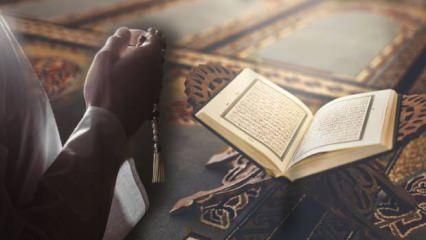
Thursday is a special day for Muslims, as it is the day before Friday, which is the day of congregational prayer and the weekly sermon. Thursday is also a day of preparation, reflection and gratitude for Muslims, who seek to increase their worship and devotion to Allah on this blessed day.
One of the ways that Muslims can enhance their spirituality on Thursday is by performing voluntary prayers, or nawafil, in addition to the obligatory prayers, or fard. Voluntary prayers are a means of drawing closer to Allah, seeking His forgiveness, expressing gratitude for His blessings, and asking for His guidance and protection.
Some of the voluntary prayers that Muslims can perform on Thursday are:
- The Duha prayer: This is a prayer that can be performed anytime between sunrise and noon. It consists of at least two units (rak’ahs) of prayer, and can be up to twelve units. The Prophet Muhammad (peace be upon him) said: “Whoever prays the Duha prayer, his sins will be forgiven even if they are like the foam of the sea.” (Sunan Ibn Majah)
- The Dhuhr prayer: This is the obligatory prayer that is performed at noon. It consists of four units of prayer. Before and after the obligatory prayer, Muslims can perform two units of voluntary prayer each, as a way of increasing their reward and attaining Allah’s pleasure. The Prophet Muhammad (peace be upon him) said: “Whoever prays four units before Dhuhr and four units after it, Allah will forbid him from entering the Fire.” (Sunan al-Tirmidhi)
- The Asr prayer: This is the obligatory prayer that is performed in the afternoon. It consists of four units of prayer. Before and after the obligatory prayer, Muslims can perform four units of voluntary prayer each, as a way of following the example of the Prophet Muhammad (peace be upon him) who used to do so. (Sahih al-Bukhari)
- The Maghrib prayer: This is the obligatory prayer that is performed after sunset. It consists of three units of prayer. Before and after the obligatory prayer, Muslims can perform two units of voluntary prayer each, as a way of completing their daily prayers and seeking Allah’s forgiveness. The Prophet Muhammad (peace be upon him) said: “Whoever prays twelve units of voluntary prayer in a day and night, Allah will build for him a house in Paradise.” (Sahih Muslim)
- The Isha prayer: This is the obligatory prayer that is performed at night. It consists of four units of prayer. Before and after the obligatory prayer, Muslims can perform two units of voluntary prayer each, as a way of ending their day with worship and remembrance of Allah. The Prophet Muhammad (peace be upon him) said: “The most beloved prayer to Allah is the prayer of Dawud (David), peace be upon him. He used to sleep half the night, pray for a third of it, and sleep for a sixth of it.” (Sahih al-Bukhari)
- The Tahajjud prayer: This is a voluntary prayer that can be performed anytime between Isha and Fajr (the dawn prayer). It consists of at least two units of prayer, and can be up to eleven units. It is a highly recommended prayer that shows one’s devotion, sincerity and love for Allah. The Prophet Muhammad (peace be upon him) said: “The best prayer after the obligatory prayers is the night prayer.” (Sahih Muslim)
These are some of the prayers that Muslims can perform on Thursday to increase their faith, piety and closeness to Allah. They are not obligatory, but they are highly rewarding and beneficial for one’s spiritual growth and well-being. They also help one to prepare for Friday, which is the best day of the week for Muslims.
May Allah accept our prayers, forgive our sins, grant us His mercy and guidance, and make us among His righteous servants. Ameen.
Prayer For Friday

Friday is a very special day for Muslims. It is the day when they gather together to pray in congregation and listen to a sermon that reminds them of God and His teachings. Friday prayer, or Jumu`ah prayer, is obligatory for all Muslim men, and optional for women and children. It replaces the noon prayer on Friday.
The Jumuah prayer consists of two units (rakahs) followed by a sermon (khutbah). The prayer is performed in a mosque or any suitable place where Muslims can gather. The prayer leader (imam) recites verses from the Quran and leads the congregation in the prayer. The sermon usually covers topics such as Islamic beliefs, morals, ethics, history, current events, and social issues.
The Jumu`ah prayer is a great opportunity for Muslims to strengthen their faith, increase their knowledge, seek God’s forgiveness, and supplicate for their needs. It is also a time to socialize with fellow Muslims and show solidarity and brotherhood. The Prophet Muhammad (peace be upon him) said:
“The best day in the sight of God is Friday, the day of congregation.”
“Whoever recites ‘The Cave’ (Chapter 18 of the Quran) on Friday, God will give him a light to the next Friday.”
“There is no day more virtuous than Friday. In it there is an hour in which no one will pray to God except that God will hear his prayer.”
Therefore, Muslims should make the most of this blessed day by preparing themselves physically and spiritually for the Jumu`ah prayer, attending it early and attentively, reciting Chapter 18 of the Quran, making lots of supplications, sending blessings upon the Prophet Muhammad, and avoiding any distractions or worldly matters that may diminish its reward.
Prayer For Saturday
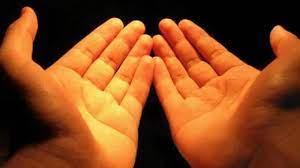
As a Muslim, I believe that Saturday is a blessed day, as it is the day when Allah created the heavens and the earth, and the day when He rested from His work. I also believe that Saturday is a day of worship, as it is one of the five daily prayer times that I observe to show my gratitude and devotion to Allah.
On this Saturday, I begin my day by reciting the Fajr prayer before sunrise, asking Allah to grant me guidance, protection, and forgiveness. I read some verses from the Quran, the holy book of Islam, and reflect on their meanings and implications for my life. I thank Allah for all the favors He has bestowed upon me and my family, and I ask Him to increase me in knowledge, faith, and good deeds.
Then, I go about my daily activities, remembering Allah in everything I do. I try to be kind, honest, generous, and helpful to others, following the example of Prophet Muhammad (peace be upon him), who was sent as a mercy to all mankind. I avoid anything that displeases Allah, such as lying, cheating, backbiting, or harming anyone. I seek Allah’s help in overcoming my weaknesses and temptations, and I repent to Him whenever I make a mistake.
Around noon, I perform the Dhuhr prayer, renewing my commitment to Allah and His commands. I praise Him for His greatness and majesty, and I seek His blessings and peace upon Prophet Muhammad (peace be upon him) and his family. I ask Allah to grant me success in this world and the next, and to save me from the punishment of the grave and the fire.
In the afternoon, I offer the Asr prayer, thanking Allah for the opportunity to worship Him again. I glorify Him for His wisdom and justice, and I seek His mercy and forgiveness for myself and all Muslims. I ask Allah to make me among those who are steadfast in their prayers, and who are mindful of Him at all times.
Before sunset, I perform the Maghrib prayer, witnessing Allah’s signs in His creation. I marvel at His power and beauty, and I acknowledge His favors and bounty. I send peace and blessings upon Prophet Muhammad (peace be upon him) and his companions, who sacrificed everything for the sake of Islam. I ask Allah to grant me their company in Paradise, and to make me among those who follow their footsteps.
After sunset, I offer the Isha prayer, ending my day with gratitude and hope. I testify that there is no god but Allah, and that Muhammad (peace be upon him) is His messenger. I seek refuge in Allah from the evil of myself and the evil of Satan. I ask Allah to accept my prayers and deeds, and to forgive my sins and shortcomings. I ask Allah to grant me a peaceful sleep, and to wake me up for another day of worship.
This is how I pray on Saturday as a Muslim. This is how I express my love for Allah, my submission to His will, and my hope for His mercy. This is how I seek His pleasure in this life and the hereafter.
Prayer For Sunday
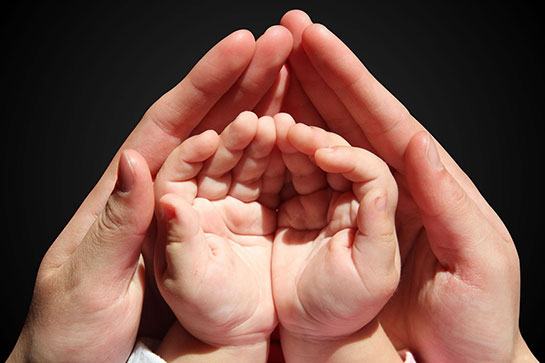
As Muslims, we are required to perform five daily prayers (salat) at specific times throughout the day. These prayers are obligatory and are one of the pillars of Islam. They help us to remember Allah, seek His guidance and forgiveness, and connect with other Muslims around the world.
However, there are also some special prayers that we can perform on certain occasions, such as on Fridays, during Ramadan, or on Eid days. These prayers are not obligatory, but they are highly recommended and have many benefits. They allow us to express our gratitude, celebrate our faith, and seek extra blessings from Allah.
One of these special prayers is the Salat al-Jumu’ah, or the Friday prayer. This prayer is performed in congregation at noon on Fridays, and it replaces the regular Dhuhr prayer. It consists of two units (rak’ahs) of prayer, followed by a sermon (khutbah) delivered by the imam. The Friday prayer is a time to gather with other Muslims, listen to the words of Allah and His messenger, and renew our commitment to Islam.
Another special prayer is the Taraweeh prayer, which is performed only during the month of Ramadan. This prayer is performed after the Isha prayer, and it consists of eight or twenty units (rak’ahs) of prayer, depending on the tradition. The Taraweeh prayer is a time to recite and listen to the Quran, as it is believed that the Quran was revealed in Ramadan. The Taraweeh prayer helps us to increase our faith, devotion, and endurance.
A third special prayer is the Eid prayer, which is performed on the first day of Eid al-Fitr and Eid al-Adha. These are two major festivals in Islam that mark the end of Ramadan and the completion of Hajj respectively. The Eid prayer is performed in congregation in the morning, and it consists of two units (rak’ahs) of prayer, followed by a sermon (khutbah) delivered by the imam. The Eid prayer is a time to celebrate our achievements, thank Allah for His favors, and share our joy with others.
These are some examples of special prayers that Muslims can perform on certain days. However, there are also other prayers that we can perform at any time, such as the Duha prayer (performed in the morning), the Witr prayer (performed at night), or the Tahajjud prayer (performed before dawn). These prayers are voluntary and have no fixed number of units (rak’ahs). They are a way to increase our closeness to Allah, seek His mercy and protection, and ask for our needs and wishes.
As Muslims, we should try to perform these special prayers whenever we can, as they have many benefits for us in this life and the next. They also show our love and obedience to Allah, who has given us everything we have. As Allah says in the Quran:
“Indeed, those who believe and do righteous deeds – for them are gardens of pleasure wherein they will abide eternally; [that is] the promise of Allah , [which is] truth. And He is the Exalted in Might, the Wise.” (Quran 31:8-9)



